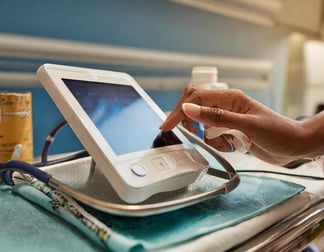The Promise of Point-of-Care Testing: Advancements and Opportunities
Point-of-care (POC) testing has rapidly evolved in recent years, offering exciting new possibilities for improving patient outcomes and transforming healthcare delivery. These small, portable diagnostic devices enable quick, convenient testing outside of traditional clinical settings, empowering patients and providers alike.
The Rise of Point-of-Care Testing
 Driven by advances in microfluidics, biosensors, and digital technologies, POC testing has become increasingly sophisticated and accessible. What was once limited to basic glucose monitoring or pregnancy tests has now expanded into a diverse array of diagnostic capabilities. From infectious disease screening to cardiovascular biomarker analysis, POC tests are bringing laboratory-quality results directly to the point of patient care.
Driven by advances in microfluidics, biosensors, and digital technologies, POC testing has become increasingly sophisticated and accessible. What was once limited to basic glucose monitoring or pregnancy tests has now expanded into a diverse array of diagnostic capabilities. From infectious disease screening to cardiovascular biomarker analysis, POC tests are bringing laboratory-quality results directly to the point of patient care.
The benefits of this shift are manifold. Faster turnaround times allow for quicker clinical decision-making and treatment initiation. Reduced sample volumes and simplified workflows improve patient comfort and convenience. And the ability to perform tests in remote or resource-limited settings expands access to diagnostic services, particularly in underserved communities.
Key Advancements in POC Technology
Several technological breakthroughs have fueled the rapid evolution of POC testing:
- Microfluidics: Miniaturized fluid handling systems enable the integration of complex assay processes onto a single, palm-sized device. This allows for efficient sample preparation, reagent mixing, and signal detection on a compact platform.
- Biosensors: Innovative biosensor designs, incorporating elements like nanomaterials, electrochemical transducers, and optical detection, have enhanced the sensitivity, specificity, and multiplexing capabilities of POC tests.
- Digital Integration: The integration of digital components, such as mobile apps, wireless connectivity, and cloud-based data management, has transformed POC tests into comprehensive, connected diagnostic solutions.
- Automation: Advancements in automated sample handling, reagent delivery, and result interpretation have made POC testing more user-friendly and less prone to operator errors.
Opportunities and Challenges
As POC testing continues to advance, several exciting opportunities and challenges emerge:
Opportunities:
- Expanded disease screening and monitoring, particularly for chronic conditions
- Improved outbreak response and infectious disease
.jpg?width=271&height=349&name=Firefly%20An%20array%20of%20point-of-care%20testing%20devices%2c%20including%20rapid%20diagnostic%20test%20cartridges%2c%20porta%20(3).jpg) surveillance
surveillance - Enhanced patient engagement and self-management of health
- Cost savings and improved efficiency in healthcare systems
Challenges:
- Ensuring regulatory compliance and clinical validation of POC devices
- Addressing data security and patient privacy concerns with connected diagnostics
- Overcoming reimbursement and adoption barriers among healthcare providers
- Maintaining quality control and standardization across diverse POC testing environments
Boston Engineering's Expertise in POC Device Development
At Boston Engineering, we have extensive experience in the design and development of innovative POC diagnostic devices. Our multidisciplinary team of engineers and regulatory experts can help you navigate the complexities of POC technology, from concept to commercialization.
Whether you're looking to develop a novel biosensor, optimize a microfluidic system, or integrate digital features, we are poised to support your POC testing initiatives and capitalize on the promising future of this transformative field.
For almost three decades, Boston Engineering has designed, developed, and optimized devices and technologies the medical community relies on to save lives, enrich quality of life, and reduce costs to the healthcare system. We provide solutions to the challenges in the adoption of surgical robotics.
Our expertise includes industrial design and product redesign, sensors and control systems, robotics technical innovation, and digital software solutions.
Imagine your Impact: Stay up-to-date with the latest insights and trends we're watching. Add your email address below and sign up for a monthly summary of our most impactful posts!












